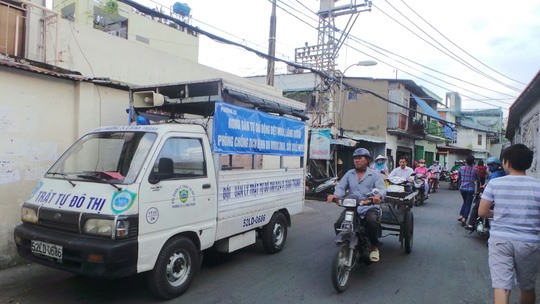 Society
Society

Việt Nam may see more Zika cases because community immunity to the mosquito-borne Zika virus is still low, particularly in central, southern and Central Highland provinces.
 |
| Việt Nam may see more Zika cases because community immunity to the mosquito-borne Zika virus is still low, particularly in central, southern and Central Highland provinces. — Photo nld.vn |
HÀ NỘI — Việt Nam may see more Zika cases because community immunity to the mosquito-borne Zika virus is still low, particularly in central, southern and Central Highland provinces.
Deputy director of the health ministry’s Diseases Control Division Nguyễn Đức Khoa made the warning at a talk held on the Government’s e-portal chinhphu.vn on Thursday.
He said that as of November 21, Zika had been found in seven provinces and cities, namely Bình Dương, Long An, Bà Rịa-Vũng Tàu, Phú Yên, Đắk Lắk , Khánh Hòa and HCM City.
So far, Zika was found mostly in localities with temperatures of 20-30 degrees Celsius, which aids the development of the mosquitoes which carry the virus causing Zika.
Meanwhile, HCM City’s Preventive Medicine Center diagnosed nine more Zika patients by yesterday, bringing the total number of cases in the city to 74 and total number of cases in the country to 83.
Dr Trần Danh Cường, deputy director of the Central Obstetrics Hospital said that Zika was dangerous for pregnant women and about 3-12 per cent of babies with Zika-infected mothers suffered from microcephaly, where babies are born with abnormally small heads and restricted brain development.
He said that there was no medicine to treat the disease and no vaccine to prevent it.
Pregnant women living in or travelling to areas with Zika should go to hospital for Zika tests, Cường said, adding that doctors could detect microcephaly from the 18th week of pregnancy.
Women who were suspected to have Zika during their first three months of pregnancy could receive free Zika tests at healthcare centres, he said.
Earlier this month, the World Health Organisation declared that the mosquito-borne Zika virus will no longer be treated as an international medical emergency. However, by lifting its nine-month-old declaration, the UN’s health agency is acknowledging that Zika is here to stay.
The move is not a demotion of the disease, Pete Salama, executive director of WHO’s health emergencies programme, told a press conference.
“We are not downgrading the importance of Zika. By placing it as a longer-term programme of work, we are saying Zika is here to stay and the WHO’s response is here to stay.”— VNS




